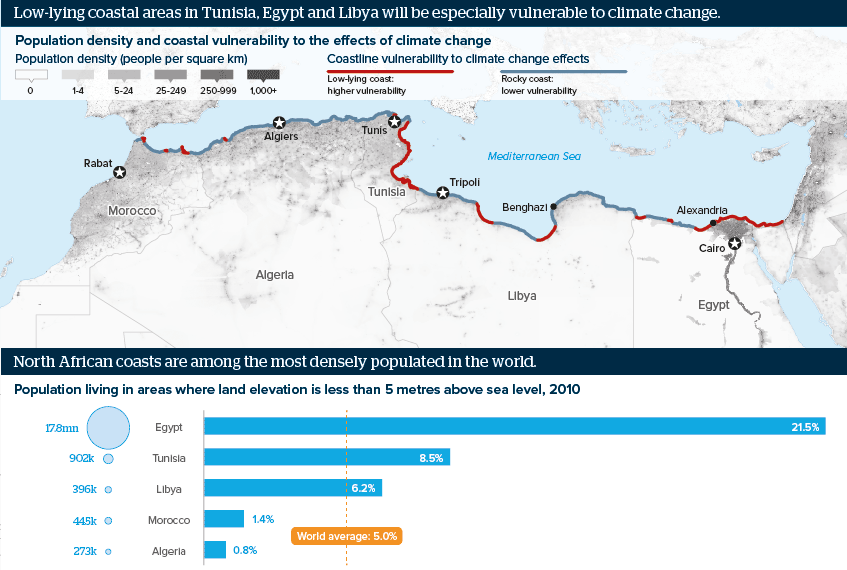Climate change impacts will hit North African coasts
North African populations are concentrated along the coastline, which leaves them particularly exposed to sea-level rise
Source: World Bank, World Bank report, Turn Down the Heat : Confronting the New Climate Normal; Nature, Alarming coastal vulnerability of the deltaic and sandy beaches of North Africa
Outlook
The majority of the populations of Algeria, Tunisia, Morocco and Libya live in coastal areas -- much of the interior is desert. Rising sea levels caused by climate change make North African states the most exposed on the African continent in terms of the proportion of the population affected, according to a World Bank report.
Climate change will have specific effects on coastal areas, such as damage from sea-level rise, flooding and destruction from extreme events (such as storms and greater coastal erosion). These effects will be compounded by high population densities along the coasts, where rapid urban development and damming of rivers have accelerated coastal erosion.
Impacts
- Climate change and urban growth is already affecting coastal aquifers and could impact groundwater levels.
- Salinisation could have a particular effect on the Nile Delta, which provides 63% of Egypt’s agricultural production.
- A drop in agricultural yields (up to 30% estimated at 1.5–2.0°C warming in Egypt and Libya) could increase migration outflows.
- Climate change could put under pressure infrastructure for beach tourism, a major earner for Egypt, Tunisia and Morocco.
See also
- Poor basic infrastructure will plague Libya for years - Nov 8, 2022
- Renewables will be slow to take off in Algeria - Jan 5, 2022
- Reports will compound global climate fears - Oct 26, 2021
- The Maghreb will struggle to adapt to climate change - Jan 26, 2018
- More graphic analysis
